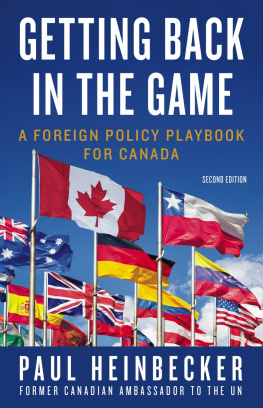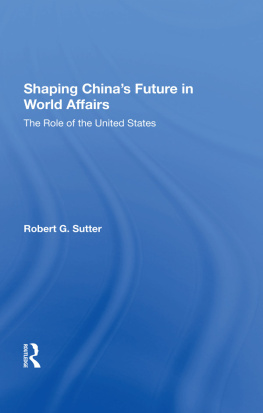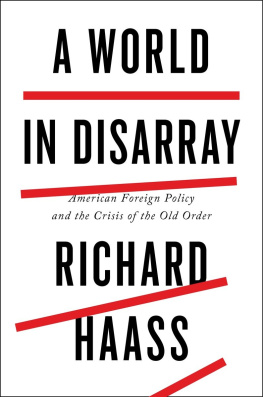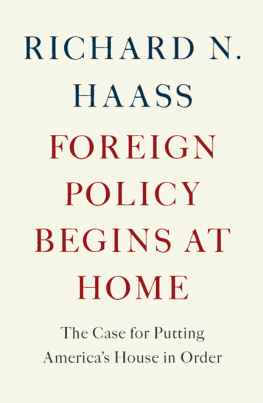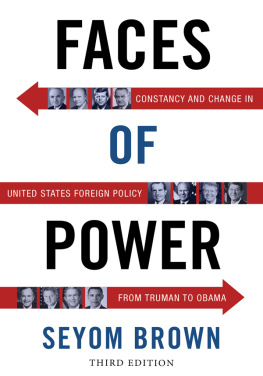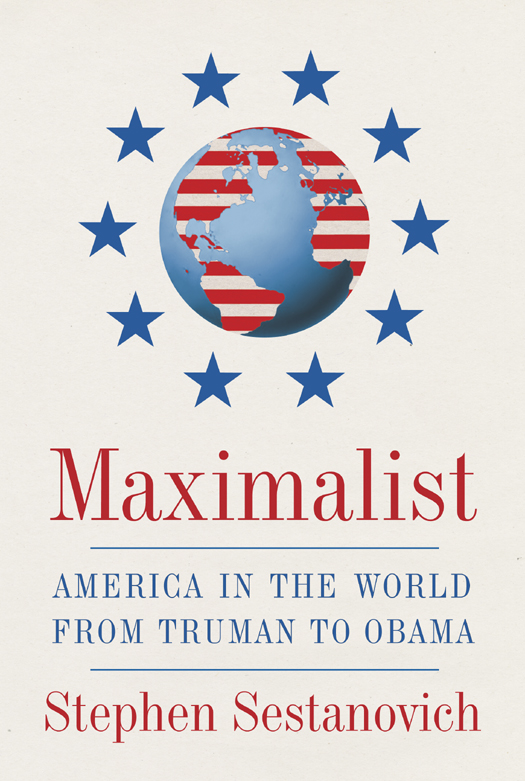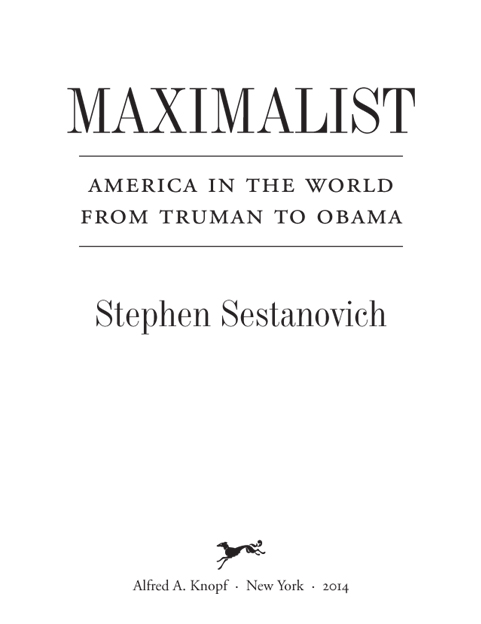THIS IS A BORZOI BOOK
PUBLISHED BY ALFRED A. KNOPF
Copyright 2014 by Stephen Sestanovich
All rights reserved. Published in the United States by Alfred A. Knopf, a division of Random House LLC, New York, and in Canada by Random House of Canada Limited, Toronto, Penguin Random House Companies.
www.aaknopf.com
Knopf, Borzoi Books, and the colophon are registered trademarks of Random House LLC.
Library of Congress Cataloging-in-Publication Data Sestanovich, Stephen, 1950
Maximalist : America in the world from Truman to Obama / Stephen Sestanovich. First Edition.
pages cm
ISBN 978-0-307-26817-4 (hardcover)
ISBN 978-0-385-34966-6 (eBook)
1. United StatesForeign relations19451989. 2. United States
Foreign relations1989 I. Title.
E744 .S5473 327.7300904dc23
2013030396
Jacket design by Jason Booher
v3.1
For
Ann, Ben, and Clare
CONTENTS
PROLOGUE
We Do Big Things
In 2003, forty years after [President Kennedys] death, when Americas reputation abroad was in tatters, I was in Rome for a speaking engagement, and invited by a local foreign policy group to give an address. On what subject? I asked the chairman. Tell us about the good America, when Kennedy was president, he said. I did. I talked about an America admired for its values, respected for its principles, not feared for its might or resented for its success; an America that led by listening, worked with the rest of the world, and respected international law; an America that stood for peace, not one that started wars.
Ted Sorensen
IT IS HARD TO THINK of any country that has ever put a larger stamp on its time than the United States of America in the second half of the twentieth century. In the wake of two world wars, which left other major powers severely crippled, America made the decisive contributions to global recovery. During the Cold War and long afterward, it was an anchor of security, an agent of prosperity, an advocate of national independence and political modernization. The most valuable institutions of international cooperation were, directly or indirectly, inspired by the United States. Its impact, moreover, extended far beyond high politics. American ways of doing things encouraged economic, social, cultural, intellectual, and technological innovation around the world.
That, at any rate, was the twentieth century. The twenty-first has already been different. Its early years brought terrorist attacks, diplomatic isolation, a burst of global anti-Americanism, and military campaigns that the United States found easy to start, impossible to win, and extremely difficult to end. To these travails were added a global financial crisis, widely blamed on American mismanagement, and a shake-up in the international economic pecking order. The United States is now on track, some say a fast one, to lose its position as the worlds largest economy. Scholars and pundits argue that its central role in international politics is also at risk. And with Washington policy making blocked by partisan gridlock, many question the countrys ability to cope with significant new challenges.
Americas past and present, in short, have rarely seemed so different from each other. One result of this mismatch has been a surge of interest in the ingredients of our previous success. What was it that once enabled the United States to deal so effectively with so many international problemsto give the world so much while also getting so much in return? Military power and economic growth are essential ingredients of a large global role, but many find the real secret of Americas large achievements in its readiness to create equal partnerships with other nations, to take their interests and ideas into account, and to play by mutually agreed rules. For others, the key lies in policy continuity over long periods, the kind of steadfastness across decades thatto take the most glorious exampleproduced victory in the Cold War. Still others point to the importance of national consensus. In the past, it is said, when Americans agreed on how to handle big problems, they were ablein Barack Obamas wordsto do big things.
IT IS THE ARGUMENT of this book that there is much to learn from the history of American foreign policy, but that we cant learn it from the sepia-tinted versions of the past that have dominated public discussion in recent years. Play well with others; make sure the country is united; find a good strategy and stick to it: our history has a more interesting story to tell us than these homilies suggest. The reason that the past can help us chart the future is that it was just as confused and chaotic as the present. It reminds us how often we have clashed with our friends and misunderstood our enemies, how often policy makers have miscalculated what they could accomplish, how rarely they kept commitments in balance with available resources, and how often they acted in full knowledge that public opinion was against them.
To take even a half-serious look at the history of American alliances is to learn how ambivalent Washington policy makers have been about working with others. Yes, they always aspired to join with like-minded governments in a spirit of give and take. They sincerely believed in the value of multilateral institutions and the advantages of observing accepted rules of the road. Yet in tackling the toughest problems, our leaders havewith some justiceusually come to doubt that collaborative approaches would succeed. Consulting with allies is one thing; letting their interests, not to mention their chronic indecision and feebleness, undermine American policy is something else entirely. It is no exaggeration to say that the history of American foreign policy is the history of what presidents and their advisers do once they conclude that others, at home and abroad, are not likely to help them very much.
No president illustrates this point better, as it happens, than the hero of Ted Sorensens good America story. John Kennedys exceptionally difficult relations with allied governments were captured in the title of Henry Kissingers 1965 book on the subject, The Troubled Partnership. As we will see, the animosity between Kennedy, on the one hand, and the leaders of France and West Germany, on the other, exceeded any case of transatlantic discord until the presidency of George W. Bush. Charles de Gaulle and Konrad Adenauer complained that Kennedy, when not simply deceiving them, was pursuing policies that put the security and independence of their countries at risk. Adenauer had a special reason to resent the young U.S. president, who openly maneuvered to oust him from his job. And De Gaulle may have known that American officials thought he needed a psychiatrist.
John Kennedy was usually able to count on greater support from the British prime minister, Harold Macmillan, than from the leaders of France and Germany. (So, of course, was George W. Bush.) But the Anglo-American special relationship had many lapses of understanding and outbursts of bad feeling. When the United States decided, in August 1962, to breach an international embargo on major arms sales to Israel, Macmillan sent Kennedy a furious protest. The prime minister expressed his personal disgust and despair at what he called a disgraceful piece of trickery. As always, when British and American priorities in the Middle East diverged, Washington insisted on taking its own approach and left London to adjust as best it could. (Macmillan had long been unhappy with Britains subservience to America. Early in his career, he compared relations between the two countries to the way Greek slaves ran the operations of the Emperor Claudius.)


